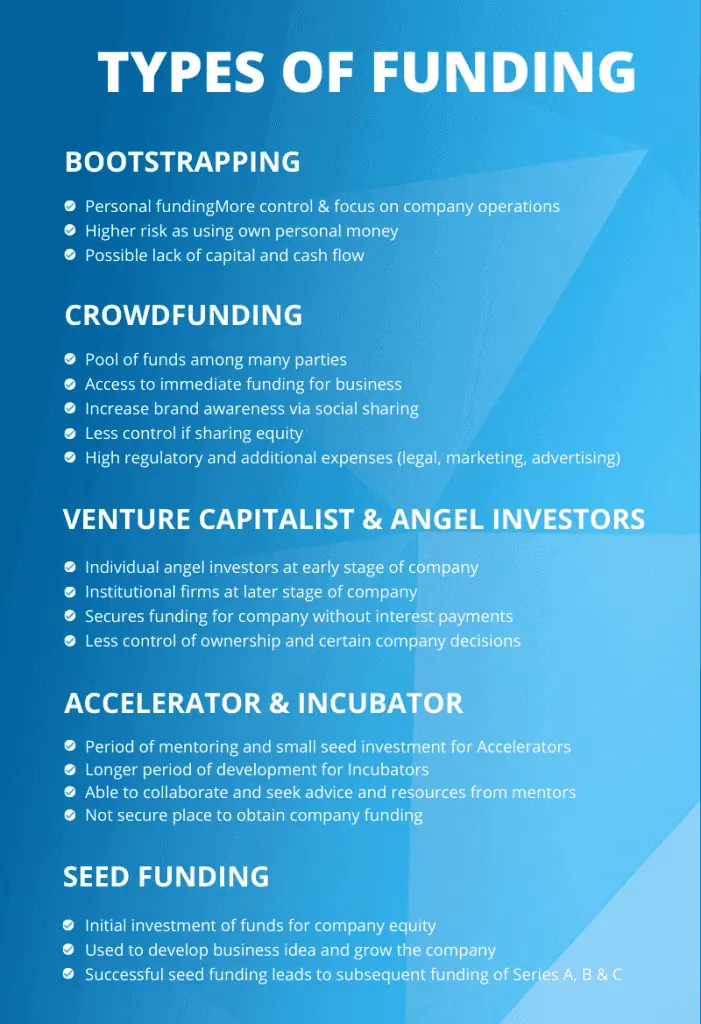Updated: 28/06/2023
Are you thinking to start a new business? Running a business has a big influence on your life and the lives of others whom you care about. However, before you can operate a business, you must first understand how to establish one. If you've never done it before, deciding how to establish a startup business might be a difficult task. Fortunately, many other entrepreneurs have gone before you, and you can learn from their successes—and their business mistakes.
What is a Startup Business?
A startup is a business that is still in its early phases of development. One or more entrepreneurs form a startup to produce a product or service for which they feel there is a market. These businesses typically start with high costs and low income, which is why they seek funding from a number of sources, such as family, friends, and outsiders, which is also known as crowdfunding, or directly from venture capital firms. These businesses usually lack a fully formed business strategy and, more importantly, sufficient finance to go to the next stage of development. The majority of these businesses are started by their founders.
Before Starting a Business
Before you start your business, finding out "why do you want to establish a business?" is the first step on the trip. Though it may seem common and general, it is a crucial topic to consider when starting and growing a firm. It helps to clarify your goals and motivations for starting a business.
Once you have determined why you want to begin a business, have a business plan prepared.
Steps to Start a Startup Business
A thousand-mile journey begins with a single step, yet that step is not simple. Thousand of entrepreneurs take the plunge every day around the world, but millions of would-be entrepreneurs do not. What's stopping them from launching their own business? They have no idea where to begin or how to launch a business. So, here are a few suggestions to help you get started.
Funding
Startups frequently raise financing from family and friends or from venture capitalists. A venture capital firm is a group of professional investors who focus on startup investment. Crowdfunding also has become a feasible option for many people looking to secure the funds they need to drive their businesses ahead. The entrepreneur creates an internet crowdfunding website where people who believe in the business may donate money.
Legal Structure
Startups must determine which legal form is ideal for their business. A single proprietorship is ideal for a firm owner who is also a significant employee. Partnerships are a valid legal form for enterprises involving many persons with joint ownership, and they're also quite simple to set up. A startup's personal responsibility can be lessened by forming a limited liability corporation (LLC).
Decide on a Business Name
Every company needs a name. A successful company is more than simply a name; it's also an element of your marketing strategy and brand identity. After you've chosen a business name, do a name check:
- Complete the Request For Availability Of Name form and send it to Suruhanjaya Syarikat Malaysia ("SSM"), together with an RM30.00 charge for each name you want to apply for.
- After you've double-checked the name, register it with SSM to gain permission from Malaysia's Company Formation.
Decide on a Location
Where a company is located is one of the most critical factors to consider for anyone beginning a business. The location of a startup business can determine whether a business can succeed or fail. Startups must select whether they will conduct their company online, at an office or at home, or in a shop. The location is determined by the type of product or service being provided.
A virtual reality hardware business, for example, could require a physical storefront to provide buyers with a hands-on experience of the product's complicated capabilities.
Registered Office Address
Every company in Malaysia is required to have a legally registered local office address.
Prepare Paperwork for Incorporation.
- Memorandum and Article of Association / Constitution
- Statuary Declaration By A Director Or Promoter Before Appointment
- Declaration of Compliance
- Company name’s approval letter from SSM (one copy).
- Identity card of every director and company secretary (one copy each).
Incorporate Your Company
Within three months following SSM's approval of the company's name, you must submit the Incorporation Documents to SSM. If you do not submit your incorporation paperwork to SMM within three months, you will need to apply for a fresh name search.
Pay Registration Fee
The registration fee for a company is RM1,000.
Issuance of a Registration Certificate
You will receive your new business Registration Certificate within one hour of completing the registration cost payment transaction.
How to Fund Your Startup Business?
Starting a business is costly. One of the first and most significant financial decisions most business owners make is how to fund their company. How you choose to fund your company could have an impact on how you structure and run it in the long run.
Crowdfunding
Crowdfunding is usually done online, using websites that allow start-ups to provide information about their company, product, or service for others to examine and determine whether or not they want to invest.
Individuals might be given the option of choosing how much money they want to invest, or corporations can provide packages that reward investors. Many of these platforms also promote openness, allowing businesses to display how much money they have raised or the financial target they are aiming for.
Bootstrapping
Any startup that bootstraps are essentially supporting the firm using personal cash, which is typically a credit card or the owner's savings. The owners that choose this route typically want to improve the product they're putting out on the market and eventually make more money from it.
Venture Capital
Investors provide venture financing to start-ups and small businesses that they feel have the potential for long-term growth. Well-heeled investors, as well as investment banks and other financial institutions, are the most common sources. Investors frequently have similar market interests as the company and are looking for a product or service with strong competitive advantages and a large prospective market.
Investors could also be prepared to provide administrative and technical skills. Venture capitalists, on the other hand, frequently desire a role in corporate decisions and to keep their own interests in mind.
Angel Investors
Individuals with industry expertise and experience who can also give financial assistance to a start-up are known as angel investors. These are usually seasoned entrepreneurs that want to assist new business owners. When it comes to investment, they usually don't take more than 10-20% equity. This enables them to provide motivation and alignment to business founders without detracting from their job as founders.
Accelerator
An accelerator provides a brief but crucial time of coaching in exchange for a tiny initial investment. And, due to the high level of competition, getting into one of the top accelerator programmes is usually not simple. The businesses should graduate from the accelerator after one to four months and approach Venture Capitalists for additional investment.
Incubators
Incubators are places where entrepreneurs may develop their ideas and turn them into businesses. Universities, governments, and economic development groups typically fund these incubators. Incubators, unlike accelerators, have a less tight time period, do not supply funding, and do not have a thorough training programme. In addition, they try to achieve success faster than accelerators.
Some firms spend years in incubators developing their goods, while others release them in a matter of weeks. Incubators benefit from low-cost office space and engagement with other innovators, whilst accelerators benefit from training and instructions. Because of the benefits of both, several businesses participate in both.
Seed fundings
Another sort of funding is seed funding, which is the most prevalent type of capital used to start and expand a firm. Seed money is the first investment made in a business in exchange for a share of the company's stock.
A seed round, often known as seed funding, is the company's first round of capital. The Series A round of fundraising follows, followed by the Series B round, and so on. Venture capitalists (VCs) and angel investors join during the Series A stage. The rounds will continue until the firm is able to make enough money to grow. As a result, it's critical to grasp the differences between each of the fundraising rounds in order to effectively interpret newspaper headlines about any type of investment and startups, as well as your company's investments.
Grants
Grants are financial resources provided by governments, organizations, foundations, or institutions to support specific projects, initiatives, or individuals. They are non-repayable funds awarded based on various criteria, such as the merit of the proposal, the alignment with the grantor's objectives, or the intended impact of the project.
Grants can be available for a wide range of purposes, including scientific research, education, arts and culture, social programs, environmental conservation, entrepreneurship, and community development. They are typically awarded through a competitive application process, where applicants submit detailed proposals outlining their project's objectives, plans, budget, and expected outcomes. The grantor reviews the proposals and selects recipients based on their eligibility and the strength of their submissions.
Conclusion
Starting a business can be a dream for everyone but understanding where to begin and how to sustain your business is another concern. Learning the essentials about how to start a business is crucial to every startup.
Building a business might take some time but when your business starts to operate and becomes self-sustaining, it is the most rewarding thing ever. That's when you know you've taken the proper steps to turn your dream business become a reality.
References
A Complete Guide to Start A Business in Malaysia 2023
How to Fund Your Start-Up Business in Malaysia in 2021
Starting A Business in Malaysia: How to Get Funding for a Start-Up







